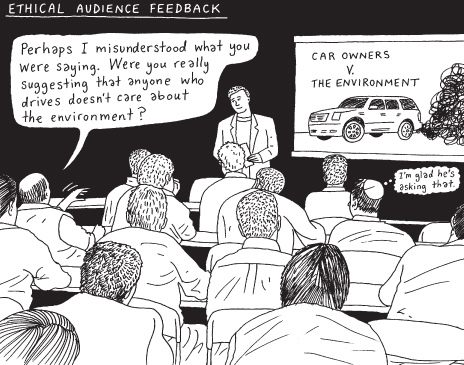Hold the Speaker Accountable
Printed Page 86
Prejudging a speech or speaker is clearly unethical. But mindlessly swallowing what the person says in his or her presentation can be equally damaging. To avoid this, you need to hold the presenter accountable for his or her claims. How can you do so? If time is available at the end of the speech, ask questions that prompt the speaker to explain or defend statements you think require additional evidence. If your instructor allows time for a longer exchange, don’t hesitate to honestly (and respectfully) express your response to the speech. Convey questions and opinions politely, focus on the content of the speech itself, and scrupulously avoid attacking the speaker’s character. For example, say, “Can you tell us more about how you arrived at those figures?” rather than, “You obviously didn’t care enough to do a thorough job in your research.” In offering feedback to the speaker on his or her presentation, frame your comments or suggestions constructively—that is, in ways that can help the person build his or her public speaking skills. Avoid destructive feedback, which only diminishes the presenter and denigrates his or her speech.
